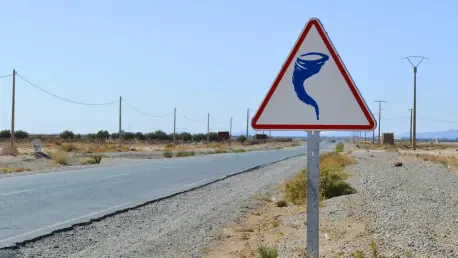The recent EF-1 tornado that struck Columbia, Missouri, on Sunday has caused substantial damage to the city’s recycling infrastructure, leaving residents and city officials facing a considerable challenge. The tornado’s impact led to the declaration of a disaster, marking only the second emergency declaration in Columbia within the past 15 years. As recovery efforts commence, city officials, including utilities spokesman Matt Nestor and city manager De’Carlon Seewood, are urging residents to be patient and cooperative during this critical period. With the city’s recycling program currently suspended indefinitely, the focus is on managing immediate environmental risks and developing a strategic long-term recovery plan.
Tornado Impact and Immediate Repercussions
The tornado inflicted severe damage on Columbia’s essential infrastructure, resulting in widespread power outages and significant disruptions to public services. The city’s recycling facilities were hit hard, leading to the suspension of the recycling program, which has raised concerns about potential health and sanitation risks. The temporary closure of Columbia’s eight recycling drop-off centers is expected to cause an overflow of recyclables if residents do not adhere to the guidelines and continue to drop off their materials. City officials are particularly worried about the illegal disposal of waste in parks and wooded areas, which could exacerbate environmental hazards.
To mitigate these risks, the city plans to remove the drop-off bins temporarily. Matt Nestor highlighted that a similar situation occurred two years ago when a winter storm caused a temporary halt in recycling services. The resulting overflow created a significant mess once services resumed, underscoring the need for residents to keep recyclables at home until the program can be reinstated. Nestor emphasized the importance of patience and cooperation from the community as the city works to manage the immediate aftermath of the tornado.
Long-Term Recovery and Strategic Planning
As Columbia looks ahead to rebuilding its damaged recycling facilities, city officials acknowledge that the process will be lengthy, with estimates suggesting it could take over a year. This extended timeline has prompted discussions about interim solutions to manage the city’s recycling needs. One option under consideration is hiring an external service to handle recycling during the reconstruction period. De’Carlon Seewood mentioned that a thorough analysis and strategic planning are necessary to decide the most effective path forward.
An evaluation conducted in 2023 had already identified the city’s recycling plant as outdated and inefficient, signaling a need for modernization. Before the tornado, Columbia had planned to build a new recycling facility by 2027 or 2028. The recent storm damage might accelerate this timeline, as the urgency to modernize the facility has now increased. Moreover, Columbia’s broader climate action strategy, established in 2020, incorporates waste reduction goals, making the efficient operation of recycling services crucial.
Community Cooperation and Interim Measures
In the face of the current crisis, community cooperation remains vital. Amid the suspension of recycling services, residents have been encouraged to adopt practical waste-reduction measures. The Climate and Environment Commission, led by chair Abra Spisso-Podoliak, suggests small everyday actions such as using reusable water bottles and utensils to help minimize waste. These steps, while modest, can collectively help ease the burden on Columbia’s strained waste management systems.
Despite the setbacks, there is a strong consensus among city officials and the Climate and Environment Commission that Columbia can still achieve its ambitious environmental goals. Resilience and adaptability will be essential as both short-term and long-term solutions are implemented. The road to recovery will undoubtedly be difficult, requiring sustained community effort and strategic planning. However, with the right approach and cooperation from residents, Columbia can overcome the challenges presented by the tornado and achieve a more robust and efficient recycling system.
Path to Recovery: Moving Forward
The recent EF-1 tornado that hit Columbia, Missouri, on Sunday has inflicted significant damage on the city’s recycling infrastructure. This disaster has led to the declaration of a state of emergency, marking only the second such declaration in Columbia within the past 15 years. The situation has left both residents and city officials with a major challenge ahead. As recovery efforts begin, city officials, including utilities spokesman Matt Nestor and city manager De’Carlon Seewood, are calling for patience and cooperation from the community during this crucial recovery period. With the city’s recycling program now suspended indefinitely, the primary focus is on mitigating immediate environmental risks and formulating a strategic, long-term plan for full recovery. The tornado’s impact has disrupted daily life and services in Columbia, necessitating a coordinated and communal effort to rebuild and restore normalcy. As the city navigates this crisis, officials emphasize that the road to recovery will require time, resources, and a united approach from all residents.









